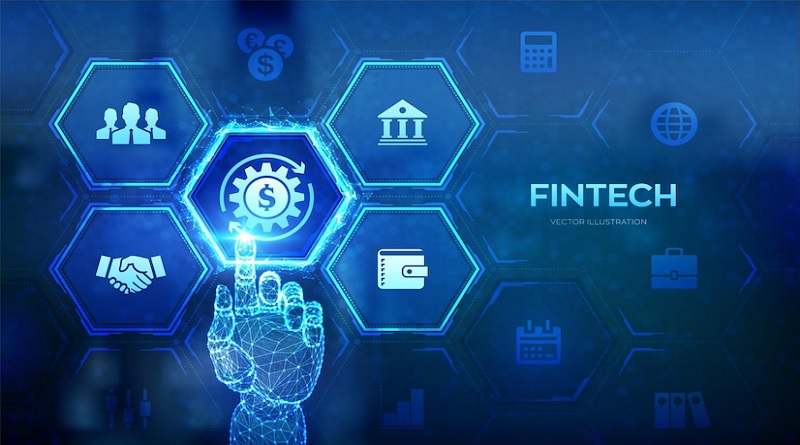TECHNOLOGIES SHAPING THE FUTURE OF FINTECH
Different technologies have been applied to meet the needs of the sector as FinTech becomes more widely adopted globally. Consumer expectations, governmental approvals, security upgrades, and rivalry are a few of them. The sophisticated technologies powering the ecosystem have improved in intelligence and adaptability. The categories of artificial intelligence (AI), cloud computing, blockchain, the internet of things (IoT), and open banking can be used to categorize the major themes for the future of fintech. Let’s take a closer look at these FinTech technological trends.
Key FinTech Trends
#1: Artificial Intelligence for Smarter Solutions
According to the Cambridge Center for Alternative Finance, 90% of FinTech companies are already using AI in some capacity. The ability of artificial intelligence to learn how to perform effectively and more quickly than humans is its most powerful feature. AI models may efficiently complete tasks without additional human involvement by learning from data. Because of this, work is completed more quickly, correctly, and efficiently, making FinTech solutions smarter.
Some of the use cases of AI in FinTech include the following:
- Purposing chatbots into virtual assistants to answer customer queries, offer suggestions, and complete repetitive tasks
- Deploying Natural language Processing (NLP) to enable human-like communication with virtual assistants and enhance customer engagement
- Using AI algorithms to detect suspicious activity to prevent fraud, such as flagging suspicious transactions or insurance claims
- Customer segmentation to offer tailor-made products based on risk score profiling and to facilitate faster loan approvals
As more businesses use AI as a crucial component of their operations, the value of the worldwide AI market is anticipated to reach $26.67 billion by 2026, according to Mordor Intelligence.
#2: Cloud Computing Improves Security
Through automated and incorporated security controls, cloud computing significantly improves security in addition to speed, scalability, flexibility, and faster deployment. The risk of handling sensitive data and adhering to industry rules is always there in fintech. Traditional IT ecosystems have been shown to be less dependable than cloud data warehousing. Data leakage and fraud are better prevented by the cloud’s characteristics like zero-trust verification and data encryption.
With cloud computing becoming more widely available, it is altering how we live. By offering a route for security-rich data exchange and dynamic applications that can be used in any industry or sector of business, regardless of what you’re doing right now, it helps enterprises to uncover digital transformation use cases.
FinTech solutions’ scalability is also facilitated by cloud technology, which will have a significant impact in the future. A scalable infrastructure is necessary for any startup that wishes to expand. Upgrading cloud infrastructure is simpler and less expensive. Additionally, this flexible environment makes it easier for firms to adjust to changes in the market, such as changes in customer demand, compliance with regulations, and the adoption of new technology.
#3: Blockchain Disrupts Outdated Financial Systems
The ability of blockchain to upend established banking systems is enormous. It is possible to store, share, synchronize, and distribute data across various data stores in real time by using Distributed Ledger Technology (DLT). Additionally, it resolves issues brought on by antiquated financial systems, like reliance on a centralized system, which creates a single point of failure, lack of trust, and greater operational expenses. Among the advantages of this are increased revenue, enhanced end-to-end experience, and decreased business risks.
The use of blockchain has increased traditional players’ desire for investment, including institutional investors, resulting in an increase in the capital allocation of digital assets in their portfolios. The most cutting-edge FinTech products include blockchain modules to appeal to cryptocurrency aficionados and penetrate the quickly expanding cryptocurrency markets. Traditional financial institutions should keep an eye out for this in the future of FinTech as they are also participating in this trend. Central banks all over the world are testing programs like the central bank digital currency (CBDC). Another illustration is how J.P. Morgan uses blockchain to speed up transactions by cutting the time it takes to process and verify large payments.
#4: IoT Сollects Customer Financial Data More Efficiently
Internet of Things (IoT) communication solutions is becoming more and more popular among FinTech companies, allowing more equipment—from wireless and end-point devices to centralized control management—to communicate across connected networks. Furthermore, smart technologies and embedded systems are developing quickly, enabling intelligent and smooth communication across various nodes.
IoT is used in the financial sector, among other things, to produce useful customer data, reduce the need for human input in resolving financial difficulties, detect fraud, and provide strong data protection. In the meantime, insurers are utilizing IoT more and more to assess risk, improve consumer interaction, and streamline the difficult underwriting and claims processes. For instance, when calculating premiums, auto insurers previously employed indirect factors such as the driver’s residence, age, and creditworthiness.
#5: Open APIs Drive Industry Growth
APIs and services for open banking are becoming more widespread as the globe transitions to an open banking system. These APIs are essential for creating an intuitive user experience and protecting data via endpoints. At the desire of the consumers themselves, open banking enables banks to access user data for third-party suppliers via APIs. As a result, you may effortlessly link your bank account to your preferred fintech personal finance management tool for more precise money tracking.
Open banking gives banks the chance to learn from and work with FinTech instead of competing. As banks are frequently reluctant to innovate, this results in a win-win situation. The relationship with traditional banks only helps them because FinTech companies are quick to innovate but lack financial heft. Another option is to construct a revenue-sharing ecosystem, in which incumbents provide access to services created by third parties for their customers while earning money through advertising, infrastructure, or subscription services. Additionally, APIs can be exchanged between different business lines or with reliable outside partners. This encourages ecological interactions and promotes innovation.
The FinTech Ecosystem
The foundational progress powering the FinTech ecosystem depends on a variety of building components, without which it would be impossible. The ecosystem will undergo a further transformation as a result of the inclusion of Blockchain, IoT, Open APIs, Cloud Computing, and Artificial Intelligence. Forward-thinking businesses must use FinTech innovation software solutions that promise to shape the future of FinTech and reap a wide range of benefits in order to compete successfully, improve customer experience, manage risks, and meet regulatory obligations.








